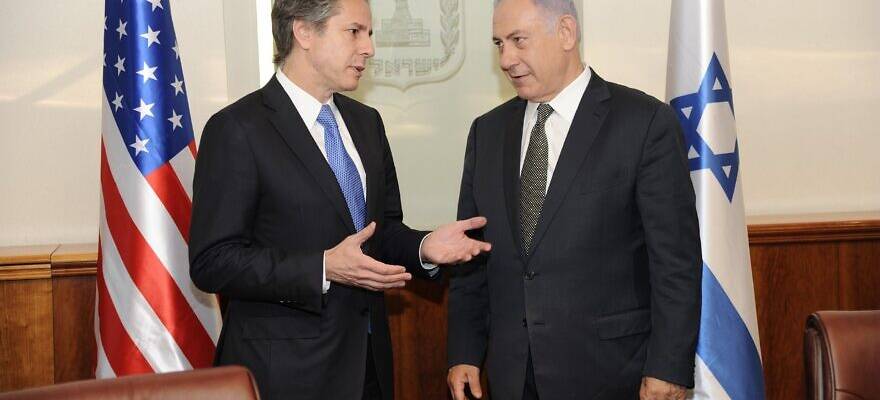Blinken defended the nuclear deal signed with Iran in 2015, saying that Iran would have to come back into compliance with it.
By Aryeh Savir, TPS
The US embassy will not be moved back from Jerusalem – Israel’s capital – to Tel Aviv, and Iran is only three to four months away from breakout time for a nuclear weapon, Antony Blinken, President-elect Joe Biden’s selection as secretary of state, told the Senate.
Speaking during his confirmation hearing at the Senate on Tuesday, he said he would keep the US Embassy in Jerusalem, where President Donald Trump moved it in 2018.
“We’re off to a good start here,” said Republican Senator Lindsey Graham.
While Biden remained committed to a two-state solution with the Palestinians, Blinken said, “realistically, it’s hard to see near-term prospects for moving forward.”
Blinken defended the nuclear deal signed with Iran in 2015, saying that Iran would have to come back into compliance with it.
“We would use that as a platform with our allies and partners, who would once again be on the same side with us, to seek a longer and stronger agreement,” Blinken said.
He noted that since the US pulled out of the agreement with Iran, the Islamic Republic has increased its stockpile of low-enriched uranium and relaunched its centrifuges program to produce higher-grade uranium, reducing its breakout time for a nuclear weapon from over a year to just three or four months.
“That potentially brings us right back to the crisis point we were reaching before the deal was negotiated,” Blinken warned.
As for the US re-entering the deal with Iran, he said the Biden administration would consult with Israel and Arab allies in the Middle East before doing so.
“It’s vitally important that we engage on the takeoff, not the landing with our allies and partners in the region, to include Israel and to include the Gulf countries,” he said, underscoring that a new agreement would address Iran’s “destabilizing activities” in the region, its promotion and support of terrorism, as well as its ballistic missile threat.
“Having said that, I think we’re a long way from there,” Blinken said.
Asked by Graham whether he considered Iran the world’s “largest state sponsor of terrorism,” he replied, “I do.”
Does he consider Israel a racist nation? “No.”
He and Biden are “resolutely opposed” to the Boycott Divestment and Sanctions (BDS) movement against Israel, he said, because it “unfairly and inappropriately singles out Israel and creates a double standard that we do not apply to other countries.”


No comments:
Post a Comment